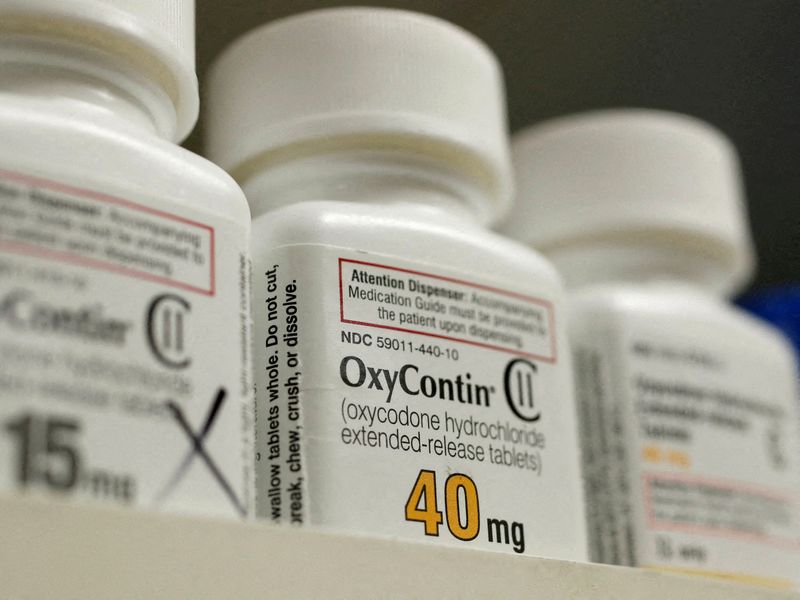(Reuters) - Members of the Sackler family that own Purdue Pharma struck a new settlement last week with a group of eight states and the District of Columbia to resolve widespread litigation accusing the OxyContin maker of fueling the U.S. opioid epidemic.
The following details next steps for Purdue and potential hurdles as it moves closer to exiting bankruptcy.
What is in the revised deal?
Under the new settlement, the Sacklers will pay between $5.5 and $6 billion to a trust that will be used to pay the claims of opioid creditors, including states, victims of addiction, hospitals, and municipalities.
The Sacklers have denied wrongdoing, but expressed "regret" that OxyContin played a role in the opioid crisis.
U.S. Bankruptcy Judge Robert Drain must approve the settlement and will consider the matter at a hearing on Wednesday.
The deal replaces a previous $4.3 billion agreement, which was upended on appeal after nine attorneys general argued that the Sacklers should not receive sweeping protection from current and future opioid lawsuits as part of the deal.
Does the settlement protect the Sacklers from future lawsuits?
Not directly.
The Sacklers have said in court testimony and filings that a settlement is predicated on them being shielded from opioid-related lawsuits.
But these sweeping legal protections must first be written into a Chapter 11 plan of reorganization and approved by a bankruptcy judge.
To do this, Purdue must overcome the December ruling concluding that the bankruptcy court did not have the authority to release non-bankrupt parties, like the Sacklers, from litigation.
Purdue is appealing that decision to the U.S. 2nd Circuit Court of Appeals, and will make oral arguments in that court on April 25. Purdue filed its briefs on Feb. 11, and opposing papers are due on March 11.
Do creditors need to vote on the new deal?
Purdue may have to ask creditors to vote on the new settlement, even though they already voted to support the previous $4.3 billion deal. Purdue has argued that no one is worse off under the new deal and the bankruptcy judge could conclude that a new vote is not necessary.
A new vote would be expensive and time consuming, and there is no guarantee that Purdue could maintain the broad support it achieved the first time around.
Who might oppose the new settlement?
The Department of Justice's bankruptcy watchdog has consistently opposed the use of bankruptcy law to grant the kind of sweeping legal protections sought by the Sacklers, who are not bankrupt themselves. The DOJ has opposed Purdue's appeal in the 2nd Circuit, and its written arguments are due on March 11.
The DOJ did not participate in the negotiations that led to the new Sackler settlement, and declined to comment when asked whether the agreement would change its position in the 2nd Circuit appeal.
Other states also could attempt to upend the new settlement before Tuesday's 7pm ET deadline. Other creditors, including individual victims, may also object.
Seventeen states, including Florida, West Virginia and Ohio, have already objected, saying in court papers that the latest Sackler settlement gives too much money to the states that negotiated it, through a $277 million "side deal" that will not be shared with other states.
The objecting states argued that they are receiving a lower percentage of the opioid abatement money than they would have under the $4.3 billion deal. The new settlement violates a bankruptcy principle that similarly-situated creditors must be treated equally, according to the states' objections.
Other creditors may object as well, including individual victims of the opioid crisis, who will be given a platform to speak before the bankruptcy court approves the deal. A group of Canadian municipalities and tribes is also fighting Purdue's appeal in the 2nd Circuit.
